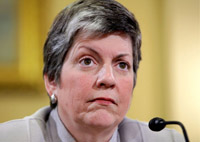SACRAMENTO, Calif. The temperature was nearly 100 degrees as 17-year-old Maria Vasquez Jimenez pruned grapes for nine hours at a vineyard near Stockton in California’s Central Valley.By the end of the day, the pregnant teen was dead from heat stroke, and her death set off renewed calls among union advocates for greater protections for farmworkers. But in the two years since, efforts to unionize workers have largely been unsuccessful.
Unions claim that’s because employers have illegally interfered with union elections, and their Democratic supporters pushed a bill through the California Legislature last week that will automatically declare a union victory if employer misconduct is shown. The bill is awaiting action by Gov. Arnold Schwarzenegger.
Between 307,000 and 450,000 people work on California farms, depending on the season, according to the state Department of Food and Agriculture. But fewer than 16,000 full-time farmworkers belong to a union, and a tally by the state’s Agricultural Labor Relations Board found 40 percent of agricultural labor elections between 2000 and 2007 resulted in a vote against representation.Critics say the bill passed last week is simply an effort by its sponsor, the United Farm Workers, and other unions to boost their anemic numbers by – in the words of the California Farm Bureau Federation – “foisting union representation” on employees.
Nearly one out of every five union workers in the U.S. lives in California, although union membership among agriculture and forestry workers is low.Under a system established in 1975, the union election process begins when a majority of a farm’s employees sign authorization cards indicating their desire to put unionization to a secret-ballot vote. Workers submit those cards to the Agricultural Labor Relations Board, which calls for an election.
The bill passed last week, SB1474, would not change that. However, it stipulates that in cases of proven employer misconduct, the authorization cards would be considered evidence of workers’ desire to organize, and a union would be authorized.”This bill is about simple parity and basic equality and something positive for some of the hardest-working people in our state,” said its author, Senate President Pro Tem Darrell Steinberg, D-Sacramento.
While the current system allows tainted election results to be thrown out, union advocates say there’s nothing to keep employers from interfering in subsequent elections. And, since many farmworkers don’t speak English and rely on their jobs to support extended families, they are particularly vulnerable to intimidation by anti-union employers.”Given the long history of illegal conduct by some growers, this bill has incredible significance for farm workers and will even the playing field in terms of available remedies that the (agriculture board) has at its disposal,” said Mark Schacht, deputy director of the California Rural Legal Assistance Foundation.
The bill’s opponents, including the farm bureau and the California Chamber of Commerce, say the agricultural board thoroughly investigates all reports of employer misconduct and there’s no evidence large numbers of farmworkers are being blocked from joining unions.
“There is an option right now to pursue claims of unfair labor practice, and the unions have not availed themselves of that to a significant extent,” said Rich Matteis, administrator for the farm bureau.The Irvine-based Western Growers Association issued a statement Friday predicting the bill would result in unions bullying the agriculture board into setting aside results from valid secret-ballot elections.
The United Farm Workers said that won’t happen but acknowledged union membership was likely to grow if it became law.”We certainly hope this will lead to a system where farmworkers have the right to participate in a fair election and choose to join a union if that’s what they want,” said Merlyn Calderon, UFW’s national vice president.
First, however, Schwarzenegger would have to sign the bill – an outcome that is far from guaranteed.The Republican governor has vetoed four broader bills intended to offer alternatives to secret ballots, a system he has described as crucial to maintaining the integrity of the election process.(AP)


